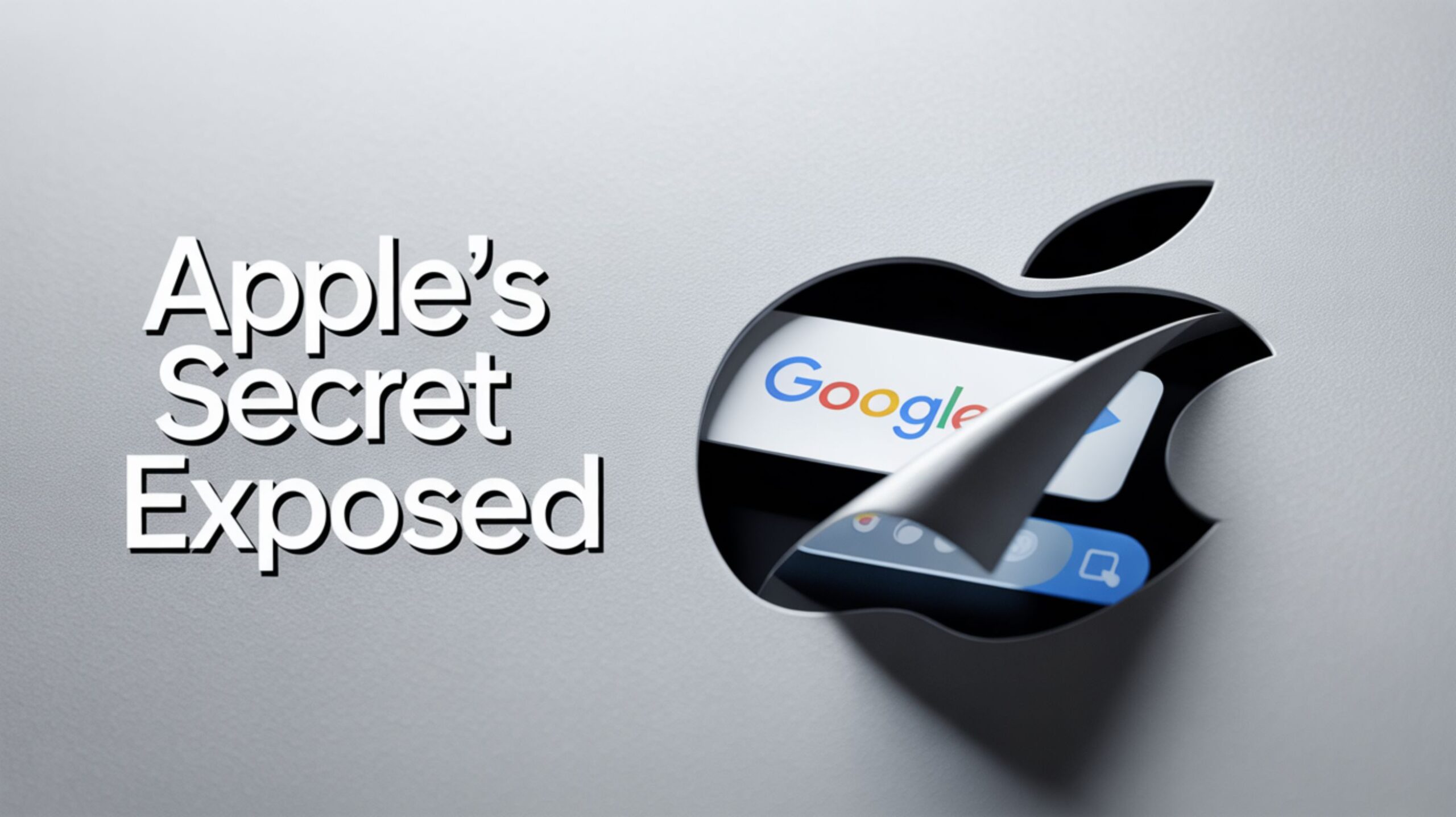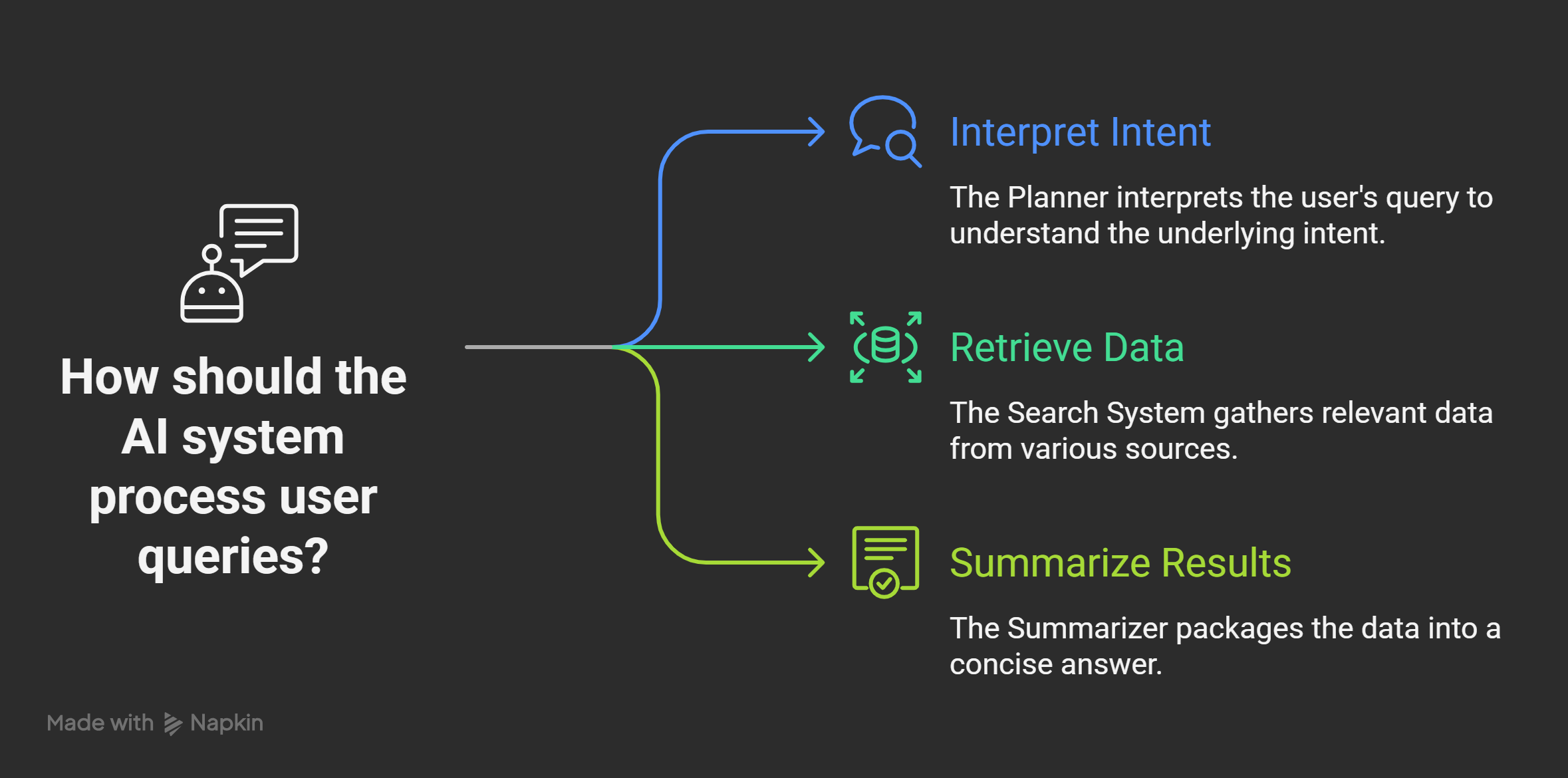Apple AI Search– Apple’s ongoing work to reinvent Siri with artificial intelligence is drawing global attention, especially after reports confirmed that the tech giant may rely on Google’s Gemini AI to bring this vision to life. While Apple has always been known for its commitment to in-house innovation, its newest initiative suggests a strategic shift: combining its capabilities with Google’s expertise to build the most advanced AI-powered search experience on the market.
Apple’s Vision for AI Search in Siri
Apple is preparing to roll out a completely redefined Siri powered by an internal feature called “World Knowledge Answers.” This system aims to go beyond simple voice queries by enabling users to access AI-generated summaries of web content. Instead of merely presenting links, Siri will provide comprehensive, digestible, and context-rich answers that integrate text, images, videos, and even points of interest.
This transformation is not simply an upgrade—it’s a shift in how Siri processes, understands, and delivers knowledge. Apple intends to make Siri capable of:
- Understanding complex queries with higher accuracy.
- Summarizing web-based content in natural, conversational language.
- Providing multimedia-rich responses with visual and interactive elements.
- Performing actions based on on-screen content and personal data.
With this approach, Apple is preparing Siri to directly compete with AI-driven platforms like OpenAI’s ChatGPT and Perplexity AI, which are rapidly changing how users interact with search engines.
Google’s Role in Apple’s AI Search Plans
Bloomberg’s Mark Gurman revealed that Apple has formally agreed with Google to test the Gemini AI model for Siri’s summarization functions. While Apple works on its proprietary models to handle user data, it acknowledges Google’s leadership in large-scale AI systems.
In practice, this means:
- Apple’s models primarily handle personal data searches, ensuring privacy and device-level control.
- Google Gemini may serve as the backbone for knowledge-based queries—questions that require broader internet search and contextual summarization.
- Apple is also evaluating Anthropic’s Claude and Gemini for advanced planning features within Siri.
By positioning Google’s Gemini within its own ecosystem, Apple is effectively wrapping Google’s AI search in a customized Apple interface, ensuring that the end-user experience remains distinctly Apple.
How “World Knowledge Answers” Works
Apple’s World Knowledge Answers is designed to be more than just a search feature—it’s an integrated system combining multiple layers of AI functions:

- Planner – Interprets the intent behind voice or text queries.
- Search System – Retrieves data from local storage, apps, or the internet.
- Summarizer – Packages results into a clear, concise, AI-generated answer.
For example, if a user asks Siri: “What are the top attractions in Paris?” the assistant will not just pull links—it will generate a tailored summary complete with a list of attractions, photos, maps, and nearby restaurants. This contextual experience is expected to raise the standard for AI-based search assistants.
Privacy and On-Device AI
One of Apple’s strongest selling points has always been its commitment to user privacy. With AI integration, this focus becomes even more crucial. Apple plans to use its proprietary AI models to process sensitive personal data locally on devices.
This means:
- Emails, messages, calendar data, and app content will be analyzed without leaving the iPhone.
- Only non-personal knowledge queries may rely on external AI models like Google Gemini.
- Apple ensures that any data exchange is encrypted, anonymized, and transparent to users.
By balancing privacy-first design with AI-driven intelligence, Apple aims to create trust while delivering cutting-edge features.
Competition With OpenAI, Perplexity, and Others
The AI search space is becoming increasingly competitive. Companies like OpenAI and Perplexity already provide AI-enhanced browsing and search tools that challenge traditional search engines—Apple’s partnership with Google positions Siri to compete directly with these players.
Key differentiators for Apple include:
- Integration with the Apple ecosystem – iPhone, iPad, and Mac users will get a seamless experience.
- Hardware-accelerated AI – Leveraging the Apple Silicon chipsets to run AI processes faster.
- App integration – Siri’s planner system will connect with native apps, allowing users to take actions directly from AI results.
This could mean booking flights, editing documents, or managing finances—all through natural conversation with Siri.
Timeline for Apple’s AI-Powered Siri
Although the iPhone 17 lineup is set to debut soon, Apple reportedly plans to launch the AI-upgraded Siri in March next year alongside iOS 26.4.
The timeline looks like this:
- Q3 2025: Final testing phase of Gemini AI integration into Siri.
- Q4 2025: iPhone 17 launch event with teasers of AI-powered Siri features.
- March 2026: Official rollout of World Knowledge Answers with iOS 26.4.
This staged approach allows Apple to refine its AI models, ensure bug-free performance, and test the effectiveness of Google’s Gemini within the Apple ecosystem.
The Strategic Importance of Apple’s AI Move
Apple’s AI search initiative is more than a feature—it is a strategic response to the changing landscape of digital interaction. Voice assistants and search engines are merging, and AI is central to this convergence.
By using Google’s Gemini as a knowledge layer, while retaining control over personal data processing, Apple positions itself as innovative and user-trustworthy. This balance is essential as consumers grow increasingly wary of how their data is used in the age of AI.
Moreover, Apple’s AI strategy could redefine the future of mobile search. Instead of users typing queries into browsers, they may rely on Siri as the default gateway to the internet. This has massive implications not only for Apple but also for the digital advertising and search engine markets.
Wrap Up
Apple’s decision to wrap Google’s AI search inside its ecosystem represents a pragmatic and forward-looking approach. By blending Google’s expertise in large-scale AI with Apple’s mastery of ecosystem design and privacy, Siri is set to evolve into a powerful, next-generation AI assistant.
The battle for AI search supremacy is heating up, and Apple’s collaboration with Google signals that the future of search may no longer belong solely to browsers—it may live in voice-driven, AI-powered assistants embedded deep within our devices.

Selva Ganesh is a Computer Science Engineer, Android Developer, and Tech Enthusiast. As the Chief Editor of this blog, he brings over 10 years of experience in Android development and professional blogging. He has completed multiple courses under the Google News Initiative, enhancing his expertise in digital journalism and content accuracy. Selva also manages Android Infotech, a globally recognized platform known for its practical, solution-focused articles that help users resolve Android-related issues.




Leave a Reply